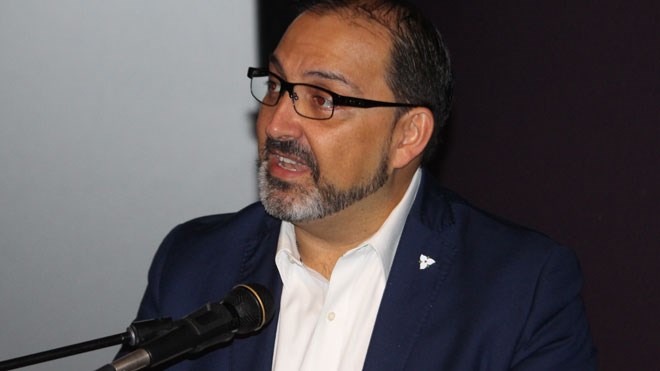SUDBURY — While it may not lead to lower costs at the pump, the province is planning to study issues related to gas prices, Energy Minister Glenn Thibeault announced Wednesday.
Speaking at a news conference in Sudbury, Thibeault he has known what an important issue it is since his time as a federal MP.
“One thing I've heard a lot about over my years, when I was at the federal level as MP and now as MPP in Northern Ontario, is the price of gas," he said. "And as the elected representative in Sudbury, my primary focus has been being a strong voice for Northern Ontario and for Sudbury, in particular the issues that we face in this region."
Since becoming energy minister in June, he has announced plans to help lower hydro rates for consumers. Directing the Ontario Energy Board to study issues related to gas prices is a another step in the government's focus on making life more affordable, he said.
"Since being appointed minister of energy last June, my key focus has been to ensure that the voice of the North is heard at the cabinet table, and that your provincial government is focused on issues that matter to all of us," Thibeault said.
The OEB will study three main issues: Why prices can be so much higher in some regions of the province than others; price spikes and dips that come as global oil prices rise and fall; and, how prices are set by individual and chain gas stations.
"I hear from many folks in Sudbury that when they travel to Toronto or Ottawa, that the price will change to 15, 20 cents sometimes just in a four-hour drive," Thibeault said. "The public doesn't always understand how the prices at the pump are set.
"The cost of electricity and gasoline is rising and we understand that consumers — both resident and commercial — are concerned about rates."
The OEB will consult with the public and other stakeholders in the coming month as it prepares its report on gas and diesel fuel prices. It will then submit a report to his ministry, Thibeault said.
"The government intends to review the OEB report in detail and will use this information to inform any decision-making process moving forward."
One thing he can't promise, however, is that the study and report will lead to lower prices. He's wary of trying to regulate prices, as some provinces have done, since it has led to higher prices.
"It's not about regulation,” Thibeault said. “Even when I was at the federal level, I did have concerns about regulating prices and the effect it has on the market.
"But I want to see more transparency on this ... Most people say they are confused as to why the price would be $1.20 in Sudbury and $1 in Toronto. We need answers, especially for those of us in the North. The OEB is going to do an unbiased report and give us good information."
Quikfax
- As part of its review, the OEB is expected to begin consultations in the coming months with the public and key stakeholders across the province.
- In Fiscal 2015-16, gasoline taxes generated $2.46 billion in revenue and other fuel taxes generated an additional $751 million in revenue for Ontario.
- Gasoline and diesel are vital transportation fuels used in Ontario. Overall, oil products account for approximately 40 per cent of Ontario’s energy use.
- The Ministry of Energy currently monitors the supply and price of gasoline in Ontario (and in other jurisdictions) on an ongoing basis and makes this information publicly available through the quarterly Ontario Energy Report.
- Overseeing competition in Ontario’s gasoline market is the responsibility of the federal Competition Bureau. The bureau is an independent federal agency that promotes compliance with the Competition Act, ensures competition in Ontario’s gasoline market and investigates anti-competitive practices, such as price fixing.
- Sudbury.com
